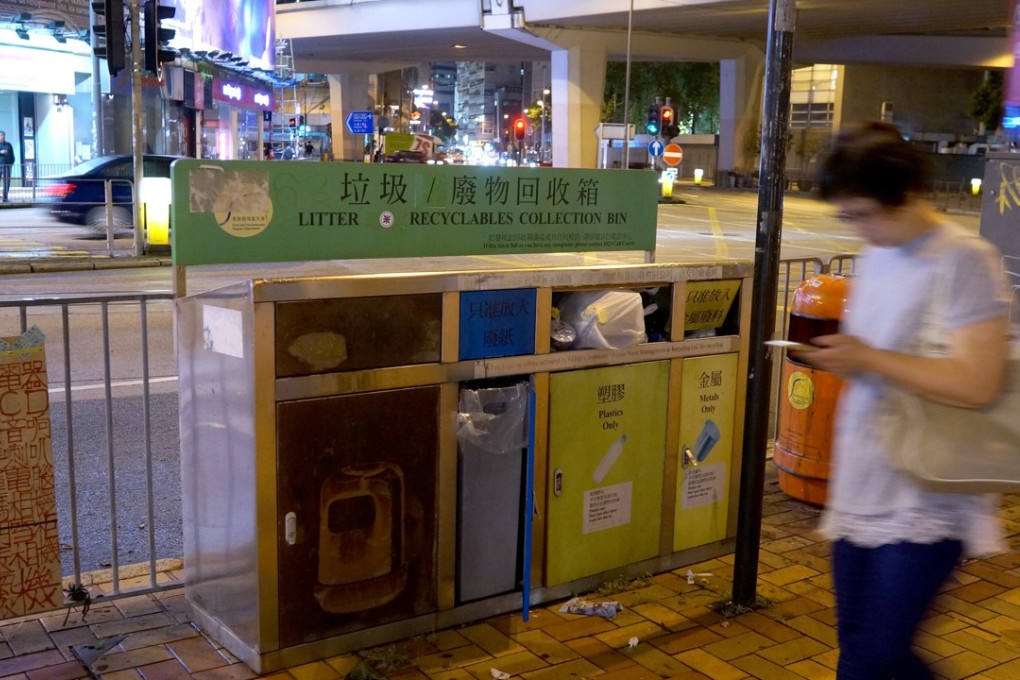Hong Kong is misusing its public recycling bins, green group says
Investigation finds less than 40 per cent of the contents of the city’s four-in-one bins were actually recyclable items

Waste-separation bins are being misused across Hong Kong, with contents more likely to end up in a landfill than at a recycling plant, a green group has found.
A two-day investigation by Greeners Action in early August of 23 four-in-one recycling bin sites at heavily trafficked spots in 14 districts revealed that on average, less than 40 per cent of their contents were actually recyclable items.
So dire was the problem, the group suggested all such recycling bins – which have compartments for general waste, waste paper, plastic and metals – to be moved into government buildings for better supervision.
Of the 1,300 samples Greeners’ volunteers took from the bins, about 16 per cent were rubbish items, 28 per cent were items too soiled to recycle and about 18 per cent were the wrong sort of recyclable in the respective bin.
What Hong Kong needs to do to recycle more: sort waste properly and see it as a chance to make money, not a problem
“The rubbish we dug out included used tissues, toothbrushes, mouldy banana peels and even half eaten ice cream cones. One may suspect the person may have just mistaken the item and sorted it incorrectly by mistake,” said senior project director, Vicki Wong Pui-chi.